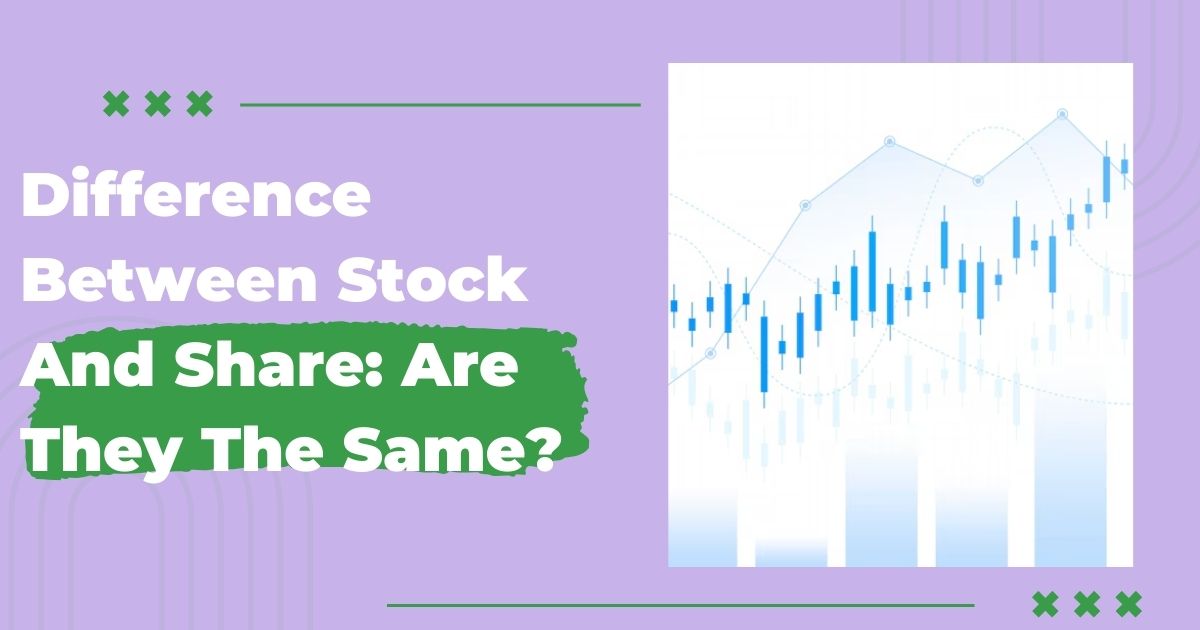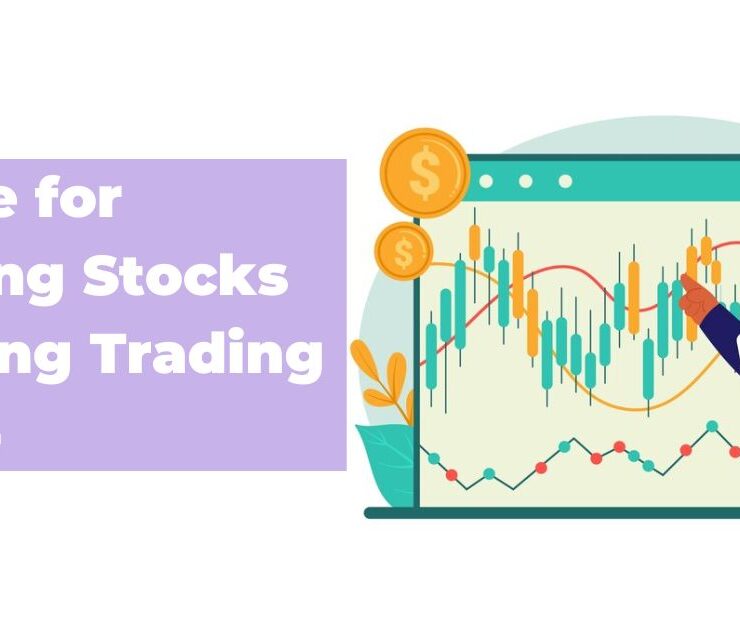Difference Between Stock and Share: Are They The Same?

There has always been a blurry distinction between stocks and shares in the financial markets. Mostly, in American English, both these words are used interchangeably to refer to financial equities, more accurately, securities that imply ownership in a public company.
Stocks is a more generic term which is often used to describe a small ownership of one or more than one company. On the contrary, shares refer to the ownership of a single company.
So when someone mentions they “own shares,” others might naturally ask, “shares in which company?” Likewise, an investor asking their broker to purchase 1000 shares of XYZ company would specifically indicate the company. However, if they said “buy 1000 stocks,” they’d be referring to a diverse portfolio spanning 100 different companies.
Stocks-
You may have heard investment professionals often using the word stocks as synonymous with publicly traded companies. They might refer to value stocks, energy stocks, large-cap stocks, small-cap stocks or food stocks. In each of these categories, they don’t equate so much to the stocks.
Financial professionals also refer to common stock and preferred stock, but these aren’t types of stock but types of shares.
So, when you hear someone talking about the stock of a company, they are most often talking about their common stock.
Common stock denotes ownership shares in a corporation and is the primary type of stock in which most investors engage. When discussing stocks, common stock is typically the focus, as it constitutes the vast majority of issued stock.
Shares-
A share is the smallest denomination of a company’s stock. So each unit of a stock is share, and each share of stock is equivalent to a piece of the company’s ownership.
Key differences between stocks and shares-
When you own shares of multiple companies, you can say you are holding stocks. But when you hold shares of a particular company, you own only the shares.
Stocks are always fully paid in nature. While shares are partly or fully paid up.
Shares can refer to a large group of financial instruments known as securities. This may include mutual funds, exchange-traded funds (ETFs), limited partnerships, real estate investment trusts, etc. But stocks mainly refer to corporate equities and securities traded on a stock exchange.
Benefits and risks associated with shares and stocks-
If you are looking for capital appreciation with a long-term goal, investing in stocks is the best way to achieve that. Investors who save for a long time can get positive returns, by investing in stocks.
However, stock prices can plunge as well. Besides, there is no guarantee that the stocks you are holding will only grow and perform well to yield profits. That’s why it is critical to do your research about the company and know the potential risks associated with stocks, and only invest what you can afford to lose.
The stock price of a company may fluctuate multiple times a day. Consider market fluctuations when investing in stocks. Stock prices may hit or lose, for various reasons including, internal and external factors like global, political or economic issues.
If you don’t have patience and you choose to sell your shares below the price you paid, you will lose money. But if you hold on until the price goes up again, you could gain a hefty profit.
Summing up
The difference between stock and share is not really significant, but it appears to be. For newbies, it may appear overwhelming at first, but with time, an investor becomes accustomed to it. However, you must know all sides of the stock vs share argument before taking the plunge into equity investments.
Once you have an investment strategy handy, you can buy individual shares and build a portfolio of stocks. Just remember to diversify your portfolio always and monitor your short and long term stock selection to ensure safeguarding your investments even when the markets are volatile.








